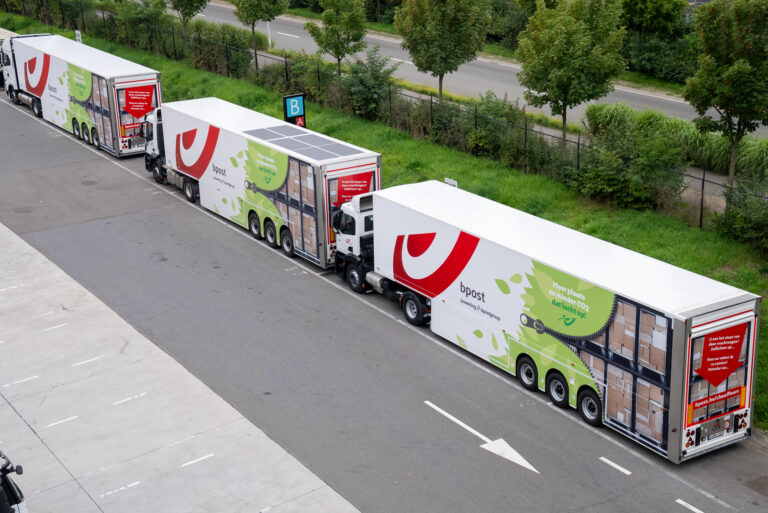bpost has added 22 double decker trailers (DDTs) to its fleet as part of its ambitions to cut carbon emissions by 55% by 2030.
The DDTs, which have been gradually replacing bpost’s standard trailers since 2020, will help cut the number of journeys and the distance covered by 30% by 2030, and 40% by 2040. They can each carry 60% more parcels and letters per journey than the largest trailers currently on the road.
Each of the 22 double deck semi-trailers is equipped with advanced options including a movable floor and solar panels on the roof to supply the energy needed to operate the movable floor and lifting tailboard.
Sustainable fleet
bpost has also announced it will add its first ever electric truck to its fleet. The truck, which is expected to arrive in September, will be used for both first-mile deliveries and journeys over longer distances.
Bpost currently has a fleet of 621 trucks (345 tractors and 276 trucks), 50 of which are powered by liquified natural gas. The rest of the fleet is made up of 349 trailers, including 16 DDTs. By the end of the year, the total number of DDTs will be 38 and bpostgroup plans to procure more than 100 double deck trailers by 2030.
The company currently makes last-mile deliveries with a fleet of 7,550 sustainable vehicles – 45% of the total operational fleet – including 2,800 bikes, 2,550 electric bikes, 1,850 electric vans and 350 three-wheel electric scooters. The company aims to achieve 100% zero-emission last-mile deliveries by 2030.
Carbon footprint calculator
bpost has also launched a carbon footprint calculator for businesses in Belgium as part of its commitment to making logistics better for the environment.
The carbon calculator estimates the carbon emissions associated with every parcel bpost handles in Belgium using various parameters such as weight, number of parcels, distances covered, number of stops and the type of vehicle used.



